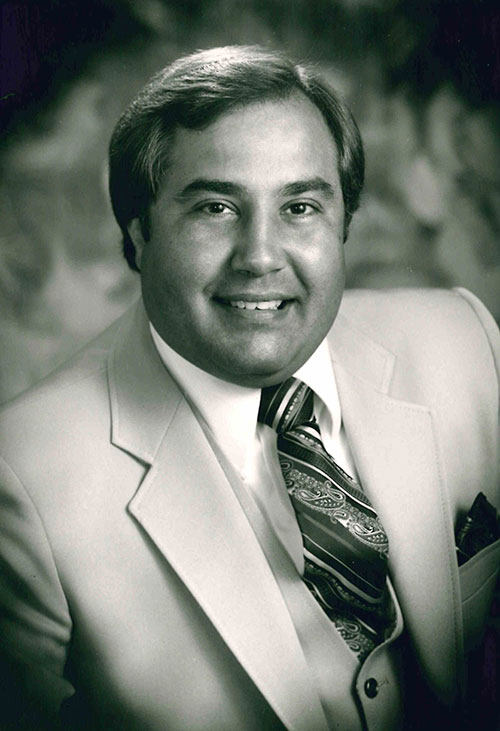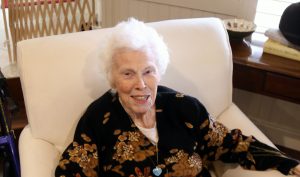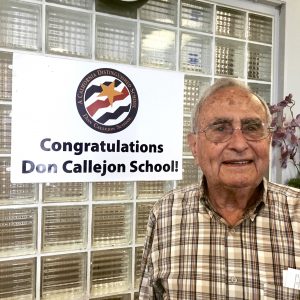
You couldn’t pay former Santa Clara Mayor Everett “Eddie” Souza a greater compliment than calling him a “common man.” Souza, who died on July 8, found his mission in the commonplace concerns of ordinary people. What was extraordinary was the energy and tenacity he brought to his advocacy for bettering people’s everyday lives.
A plain-spoken man who didn’t stand on ceremony and wasn’t above calling his opponents ‘yahoos,’ Souza “didn’t sit on the fence” about much and always made his position abundantly clear.
But he was also a man of abundant heart, who sacrificed career opportunities in order to care for his disabled son, personally answered hundreds of phone calls from constituents every week, and left his front door open for anyone to walk in and talk. “He stood up for the people who couldn’t stand up for themselves,” says former Santa Clara Council Member Kevin Moore.
“He was a truly unique person,” says former Santa Clara County Supervisor Rod Diridon Sr., who worked with Souza on political campaigns, human rights issues, and local policy groups – including Guadalupe Joint Powers Board (Light Rail System). “He carried tremendous burdens – some public, some not – but always acted honorably.”
A third-generation Santa Claran, Everett Nicholas Souza was born on Dec. 24, 1943 to Marie Antoinette and Everett Souza, who both worked at O’Connor hospital; Toni as a nurse and Everett as an orderly.
The family was active in local politics, and Souza said he decided at 10 he wanted to be mayor when his father introduced him to Mayor Joseph Rebiero. Souza graduated from Buchser High School and attended Foothill College until he was drafted in 1966. He served in the Navy and was stationed in Vietnam. In 1968 Souza returned to Santa Clara, where he met and married his wife Lavelle and took a job at Memorex.
Bobby Kennedy was one of Souza’s heroes. When Kennedy ran for president in 1968, Souza threw himself into the campaign effort. Kennedy’s assassination later that year left him disillusioned with national politics and he turned his attention to making a difference locally.
He worked on local campaigns for Supervisor Rod Diridon, Congressman Pete McClosky and State Senator Jerry Smith; becoming known for his talent for retail politics and tireless precinct work. During that time he also chaired of Santa Clara’s Citizen’s Advisory Committee and was executive director of the Crisis Intervention Center.
An archetypical self-taught man, Souza’s exhaustive command of the subject at hand often gave him an edge in public debate. “He was worth his weight in gold in terms of debate and [getting] votes,” says Diridon.
Souza was ambitious, running twice unsuccessfully for City Council before winning a seat on his third attempt in 1979. He lost a run for Mayor in 1981, but persisted; winning the office in 1985 and re-election in 1990.
The turning point in Souza’s life came in 1975 when the couple’s eight month-old son, Jerry, had a severe reaction to a vaccine; suffering brain damage that would profoundly limit his physical and mental development.
“A lot of doctors told us to institutionalize [Jerry], ‘get on’ with our lives,” Souza said in a 2008 interview with The Weekly. “We were shocked – give up our son? Give up his wonderful little smile?”
Instead, Eddie and Lavelle took up the challenge of caring for a disabled child with little outside support. As they found their way, they became founding members of the pioneering non-profit, Parents Helping Parents, now serving over 5,000 families.
Caring for Jerry became the center of Souza’s life. He began building a house designed around Jerry’s disabilities. He educated himself about Jerry’s condition and the state of public services for the disabled. In everything the Souzas did, Jerry was included no matter the obstacles. That personal experience informed Souza’s public advocacy.
His insight, though, didn’t always make Souza diplomatic or patient with his colleagues or withpublic process and his tenure as mayor was characterized by conflict. “He was the guy who did not back down,” says James Rowen, whose mother Josephine Rowen served with Souza on the Santa Clara Citizens Advisory Committee.
Souza’s plain speaking style – he once told opponents of a condo development on a cherry orchard to buy it and then they could do what they liked – made him political enemies and supplied a rich source of headlines for the press, with whom he had a love-hate relationship. Reporters prepared to profile Souza as a demagogue or a rube often ended up disarmed by his down-to-earth manner, dedication and accomplishments.
Detractors said he was a loose cannon. He once put up a billboard featuring Council Members signatures without asking them. He launched his own investigations of practices at Mission City cemetery – which led to a grand jury investigation and the City paying a $4.1 million settlement – and finances at the convention center, which didn’t lead to anything. Critics called him unsophisticated, ill-informed and opinionated – “a joke.”
In response, Souza shot back, calling them ‘yahoos’ and ‘dwarfs’ (as in Snow White). “How much money have they raised for youth and the handicapped?” he asked rhetorically in a 1987 Santa Clara American interview. “How many times have they offered a solution to a problem? What programs have they developed?”
Business Journal reporter David Barry astutely observed of Souza in 1990, “The root of his problems may be that he is not political enough. Instead of playing the game and avoiding controversy, he steps into it by being too straightforward and trying to do more for the city than Santa Clara’s political system will allow the mayor to do.”
“I want to help … people who wouldn’t normally be helped within the system,” Souza told Peninsula Magazine in1987. “The elderly, the homeless, the handicapped, the children.” One of his Council opponents perhaps captured it best. “Eddie wants to spend money on things that aren’t normal for a city.”
That was the point: Souza wanted these services to become “normal” at the local level – much as another well-loved Santa Clara political figure and progressive, “Senator John” Vasconcellos did.
Souza had different priorities from what he considered the city’s pro-business bias.
Under Souza’s leadership, the City allocated $25,000 to support a homeless shelter and $186,000 for on-site afterschool care. He was also an early supporter of the Clean Air Act, and mixed use and transit-oriented development.
Souza also supported investments – like transit – that could pay growing dividends for the city down the road. One was bringing the 49ers training camp to Santa Clara in 1985.
He believed it was a first step toward a major league sports stadium in Santa Clara and a catalyst for a Northside development – including a long-planned entertainment district. Time proved him right.
The 49ers’ public relations director at the time, Jerry Walker, told Peninsula Magazine, “Who Eddie Souza is had a lot to do with our decision to move to Santa Clara. When our new players come in, we can tell which ones will ‘go get it.’ Well, if Eddie Souza was one, we’d pick him. Nothing stops him.”
Visitation is from 5-9 pm on Friday July 22 at Lima funeral home 466 N. Winchester Blvd., with Rosary at 7 pm. Funeral Mass on Sat., July 23 at 11 am at Our Lady of Peace Church, 2800 Mission College Blvd. Interment following at Santa Clara Mission Cemetery.












0 comments